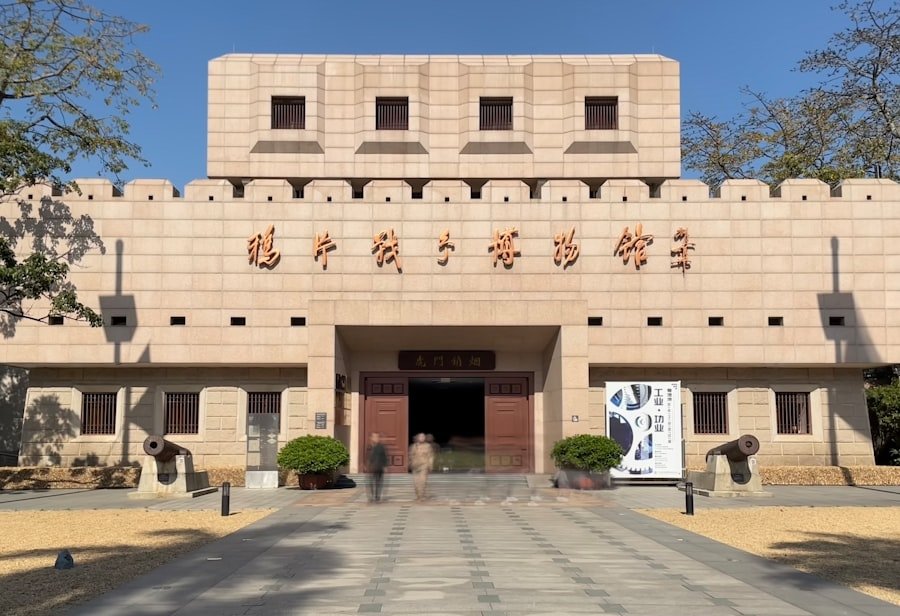

Making an Appointment: How to Set a Date and Time in Chinese
Etiquette holds a significant place in Chinese culture, deeply rooted in centuries of tradition and social norms. The Chinese value respect, harmony, and the concept of ‘face’, which refers to one’s reputation and dignity. Understanding these cultural nuances is essential for anyone looking to engage meaningfully with Chinese individuals or businesses.
In social interactions, the way one conducts oneself can either build rapport or create barriers. For instance, greetings are not merely formalities; they are an opportunity to show respect and establish a connection. A simple bow or a slight nod can convey a great deal of respect, while a firm handshake may be perceived as overly aggressive.
Moreover, the importance of hierarchy in Chinese society cannot be overstated. Age and status play crucial roles in determining how individuals interact with one another. It is customary to address elders or superiors with titles that reflect their position, demonstrating deference and respect.
This hierarchical structure extends to various aspects of life, including business dealings and social gatherings. Therefore, understanding the subtleties of etiquette is not just about following rules; it is about fostering relationships built on mutual respect and understanding. Start learning Chinese at the NLS Norwegian Language School in Oslo now!
Table of Contents
ToggleSummary
- Understanding the importance of etiquette in Chinese culture:
- Respect for hierarchy and age is crucial in Chinese culture.
- Politeness and humility are highly valued in Chinese interactions.
- The art of making polite inquiries in Chinese:
- Use formal language and titles when addressing someone in a higher position.
- Avoid direct questions and use indirect language to show respect.
- Navigating the Chinese calendar and time system:
- Familiarize yourself with the Chinese lunar calendar for important dates and holidays.
- Punctuality is key in Chinese culture, so always arrive on time for appointments.
- Using Chinese phrases to propose a date and time:
- Use polite language and consider the other person’s schedule when proposing a date and time.
- Negotiating a suitable appointment in Chinese:
- Be flexible and open to compromise when negotiating an appointment time.
- Show respect for the other person’s schedule and availability.
The Art of Making Polite Inquiries in Chinese
When engaging with Chinese speakers, making polite inquiries is an art form that requires both linguistic skill and cultural sensitivity. The Chinese language is rich in expressions that convey politeness, and using these phrases can significantly enhance communication. For instance, when asking for information or assistance, it is customary to preface the request with a polite expression such as “请问” (qǐng wèn), which translates to “may I ask”.
This phrase sets a respectful tone and indicates that the speaker values the listener’s time and knowledge. Additionally, the structure of questions in Chinese often reflects a level of politeness that is expected in conversations. Instead of directly asking for something, it is common to frame inquiries in a way that acknowledges the other person’s position or expertise.
For example, rather than simply asking for directions, one might say, “您能告诉我怎么去…吗?” (Nín néng gàosù wǒ zěnme qù… ma?), meaning “Could you please tell me how to get to…?” This approach not only demonstrates respect but also encourages a more positive response from the listener.
Navigating the Chinese Calendar and Time System

Understanding the Chinese calendar and time system is crucial for effective communication, especially when scheduling appointments or events. The traditional Chinese calendar is lunisolar, meaning it is based on both the moon’s phases and the sun’s position. This calendar differs significantly from the Gregorian calendar used in much of the Western world, leading to potential confusion when discussing dates.
For instance, the Chinese New Year does not have a fixed date and varies each year, typically falling between late January and mid-February. Moreover, time in Chinese culture is often viewed through a different lens compared to Western perspectives. Punctuality is highly valued; arriving late can be seen as disrespectful.
However, it is also important to note that there may be a more flexible approach to time in social settings compared to business contexts. Understanding these nuances can help individuals navigate scheduling discussions more effectively, ensuring that they respect cultural expectations while also achieving their objectives.
Using Chinese Phrases to Propose a Date and Time
When proposing a date and time for an appointment in Chinese, it is essential to use clear and polite language. A straightforward yet respectful way to suggest a meeting could be to say, “我们可以在星期三见面吗?” (Wǒmen kěyǐ zài xīngqīsān jiànmiàn ma?), which translates to “Can we meet on Wednesday?” This phrase not only conveys the proposed day but also invites the other person to agree or suggest an alternative. In addition to proposing specific dates, it is also helpful to provide a range of times to accommodate the other person’s schedule.
For example, one might say, “您觉得下午三点或者四点怎么样?” (Nín juéde xiàwǔ sān diǎn huòzhě sì diǎn zěnme yàng?), meaning “How about 3 or 4 PM?” This approach shows consideration for the other person’s availability and fosters a collaborative atmosphere when setting appointments.
Negotiating a Suitable Appointment in Chinese
Negotiating a suitable appointment in Chinese requires patience and an understanding of cultural dynamics. When discussing potential meeting times, it is important to remain flexible and open to suggestions. If the proposed time does not work for the other party, responding with phrases like “没问题,我们可以改时间” (Méi wèntí, wǒmen kěyǐ gǎi shíjiān), meaning “No problem, we can change the time,” demonstrates willingness to accommodate their schedule.
Furthermore, during negotiations, it is beneficial to express gratitude for their flexibility. A simple “谢谢您的理解” (Xièxiè nín de lǐjiě), which translates to “Thank you for your understanding,” can go a long way in building rapport. This not only shows appreciation but also reinforces a positive atmosphere for future interactions.
Confirming and Finalizing the Appointment in Chinese

Once an appointment has been negotiated, confirming and finalising it is an essential step in ensuring clarity and mutual understanding. A polite confirmation can be made by saying, “那么我们定在星期三下午三点见面” (Nàme wǒmen dìng zài xīngqīsān xiàwǔ sān diǎn jiànmiàn), which means “So we will meet on Wednesday at 3 PM.” This statement reiterates the agreed-upon details and provides an opportunity for any last-minute adjustments. It is also advisable to confirm the location of the meeting during this stage.
Including phrases such as “我们在咖啡馆见面,对吗?” (Wǒmen zài kāfēi guǎn jiànmiàn, duì ma?), meaning “We will meet at the café, right?” ensures that both parties are on the same page regarding where the meeting will take place.
Handling Changes and Rescheduling in Chinese
Life is unpredictable, and changes to scheduled appointments are sometimes unavoidable. When needing to reschedule or change an appointment in Chinese, it is crucial to communicate promptly and politely. A phrase like “抱歉,我需要改时间” (Bàoqiàn, wǒ xūyào gǎi shíjiān), meaning “I’m sorry, I need to change the time,” conveys both regret and necessity.
Offering alternative dates or times can help facilitate rescheduling. For instance, one might say, “您觉得星期五或者星期六怎么样?” (Nín juéde xīngqīwǔ huòzhě xīngqīliù zěnme yàng?), which translates to “How about Friday or Saturday?” This approach not only shows consideration for the other person’s schedule but also demonstrates a proactive attitude towards finding a suitable solution.
Discussing Meeting Locations and Directions in Chinese
When discussing meeting locations in Chinese, clarity is key. It is important to provide specific details about where the meeting will take place. Using phrases like “我们在市中心的咖啡馆见面” (Wǒmen zài shì zhōngxīn de kāfēi guǎn jiànmiàn), meaning “We will meet at the café in the city centre,” helps ensure that both parties understand the location clearly.
Additionally, providing directions can be incredibly helpful, especially for those unfamiliar with the area. One might say, “从地铁站走五分钟就到了” (Cóng dìtiě zhàn zǒu wǔ fēnzhōng jiù dào le), which translates to “It’s a five-minute walk from the subway station.” Such details not only assist in navigation but also reflect thoughtfulness on your part.
Polite Ways to Decline or Postpone an Appointment in Chinese
Declining or postponing an appointment can be delicate situations that require tactful communication. In Chinese culture, it is essential to express regret while maintaining respect for the other person’s time. A polite way to decline could be saying, “很抱歉,我不能参加” (Hěn bàoqiàn, wǒ bùnéng cānjiā), which means “I’m very sorry; I cannot attend.” If postponing is necessary, it is courteous to suggest an alternative time while expressing appreciation for their understanding.
For example: “我很感激您的理解,我们可以改到下周吗?” (Wǒ hěn gǎnjī nín de lǐjiě, wǒmen kěyǐ gǎi dào xià zhōu ma?), meaning “I really appreciate your understanding; can we move it to next week?” This approach maintains goodwill while addressing scheduling conflicts.
Following Up After the Appointment in Chinese
Following up after an appointment is an important aspect of maintaining relationships in Chinese culture. A simple message expressing gratitude can leave a lasting impression. One might say, “谢谢您今天的会面,我很高兴能和您交流” (Xièxiè nín jīntiān de huìmiàn, wǒ hěn gāoxìng néng hé nín jiāoliú), which translates to “Thank you for today’s meeting; I was very pleased to communicate with you.” Additionally, if there were any action items or follow-up tasks discussed during the meeting, it is courteous to reiterate them in your follow-up message.
This not only shows attentiveness but also reinforces commitment to any agreements made during the appointment.
Tips for Making a Good Impression During the Appointment in Chinese
Making a good impression during an appointment involves more than just verbal communication; non-verbal cues play a significant role as well. Maintaining eye contact while speaking demonstrates confidence and sincerity. Additionally, being attentive and actively listening when others speak shows respect for their opinions and contributions.
Dressing appropriately for the occasion also contributes significantly to first impressions. In business settings, formal attire is often expected; however, understanding the specific context can help tailor your appearance accordingly. Lastly, being punctual cannot be overstated; arriving on time reflects professionalism and respect for others’ schedules.
At NLS Norwegian Language School in Oslo, students have the opportunity to learn not only the language but also cultural nuances such as these through their comprehensive Chinese courses. The curriculum emphasises practical communication skills alongside cultural understanding, ensuring that learners are well-equipped for real-world interactions in Mandarin-speaking environments. Whether you are preparing for business meetings or social engagements, NLS provides invaluable resources that enhance your proficiency and confidence in navigating Chinese culture effectively.
Register for a Chinese class at the NLS Norwegian Language School now!
If you want to learn Norwegian, you can register for classes here. We look forward to hearing from you and helping you become fluent in Norwegian.





